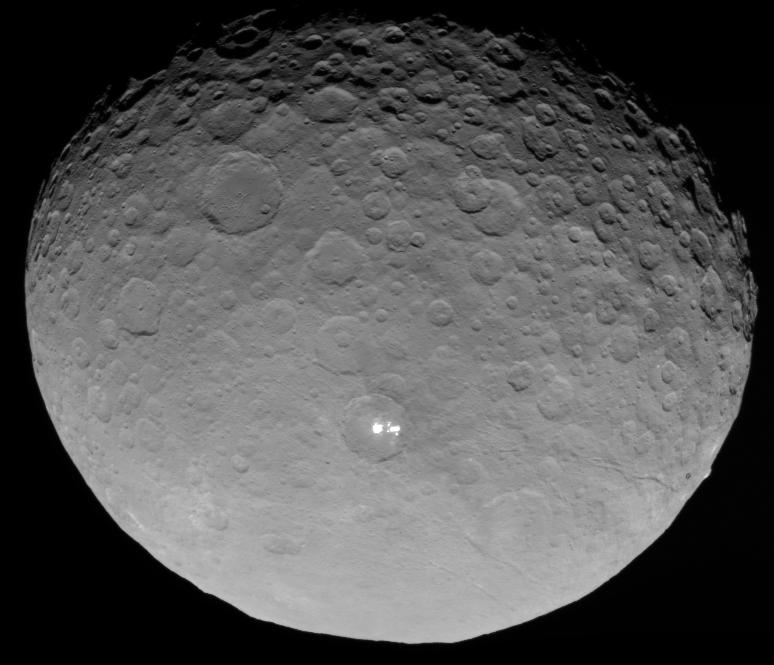Explanation: Now at Ceres, Dawn's camera recorded this closer view of the dwarf planet's northern hemisphere and one of its mysterious bright spots on May 4. A sunlit portrait of a small, dark world about 950 kilometers in diameter, the image is part of a planned sequence taken from the solar-powered spacecraft's 15-day long RC3 mapping orbit at a distance of 13,600 kilometers (8,400 miles). The animated sequence shows Ceres' rotation, its north pole at the top of the frame. Imaged by Hubble in 2004 and then by Dawn as it approached Ceres in 2015, the bright spot itself is revealed to be made up of smaller spots of reflective material that could be exposed ice glinting in the sunlight. On Saturday, Dawn's ion propulsion system was turned on to spiral the spacecraft into a closer 4,350-kilometer orbit by June 6. Of course another unexplored dwarf planet, Pluto, is expecting the arrival of a visitor from Earth, the New Horizons spacecraft, by mid-July.
1999 2000 2001 2002 2003 2004 2005 2006 2007 2008 2009 2010 2011 2012 2013 2014 2015 2016 2017 2018 2019 2020 2021 2022 2023 2024 2025 |
Yanvar' Fevral' Mart Aprel' Mai Iyun' Iyul' Avgust Sentyabr' Oktyabr' Noyabr' Dekabr' |
NASA Web Site Statements, Warnings, and Disclaimers
NASA Official: Jay Norris. Specific rights apply.
A service of: LHEA at NASA / GSFC
& Michigan Tech. U.
|
Publikacii s klyuchevymi slovami:
Ceres - Cerera
Publikacii so slovami: Ceres - Cerera | |
Sm. takzhe:
Vse publikacii na tu zhe temu >> | |
